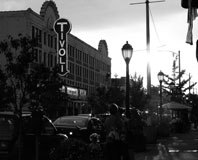
Mirror
Songs of the motherland
In the mirror I laugh. The painted coat deep inside
stipulates my light. What I do
not want to see will not be seen:
the laden clouds that refuse to budge over my head,
the riverside front I go for mild breeze,
photo-log of sun-sightings I pour over, koans I cannot solve.
I’ve paid fees to memories for these shy urges.
But the room wants precise appearances.
The room is adapted to mirror. It frames me
beautiful, like other things here: coffee-table top, glass-panes,
screen on my laptop, bottles of water even—a barter deal with all
of them—to face each other’s opacity
my thirst is never quenched.
The insecurity is when it is night. Fear that I might see
without the mirror. The body acts up
not explaining why. The audit of action and comprehension
brings in discrepancies. This is the gap
when you cross the threshold of opacity and you throw
your head back, laughing. A gap where two arrangements face each other
declining to join hands, where time cannot practise its journaling.
I become a moving embodiment of some purpose,
a slipshod managing of pressing issues.
It took so long to throw
my porter’s livery supplied by time. He owns me, wants me
to carry his bags. Time
and reading weather-reports designed by Sun constitutes hours.
You’re laughing. Steady your hands
when you hear the soul talk. You’re in-between
events happened & mechanics of perception asking for more.
If I’m a gap, is the gap still unfilled?
Laughter knocks down the order
of body. It’s a storm rising from the lungs, wanting to break
the trees, throw down flowers, cast off the fruits.
Boughs grow disinterested to defend the high green logics.
Laughter is a phantom trapped inside the body
wanting to be released.
But the mirror has been fitted, in rooms, bathrooms, lifts,
in your eyes, in the soup-cans and energy drinks,
in ice-creams and instant-noodles. It feeds on you.
You’re eating yourself. You are sweet. You are tangy. You are
bitter. Mirrors say it all.
My mind’s a switch for light’s application
& it’s broken. It does the job of transportation: ideas
of woman through the cables of power. I do not wish to freelance
for mirror that stipulates my light.
I’m feral: voltage
harnessed by dynasty. Laughing
is the flip-side of mirror: a beginning of how
it happened, that I came to think I can be fitted into one look.
Three seas & a scrap of land. Three water-walls belting the scrap of land.
All day long waves trouble her, daubs her blue. For years it has suffered
sudden inundations, waves’ attempts at misbalancing her body. All day long,
the land thinks of seas’ belligerence, days given over to frustrate her future.
The songs of my land are half-glasses of haze: a lyric made
of Himalayan black-salts & lemons.
A throwing of arms around huge mountains’ feet, praying. Not to be swept away: its opus. Songs start from her navel, only to get hit
by water-walls that wrecks it into knots of sinusoidal reality.
O mountain. Much-loved mountain. Dear mountain: chants form
because an un-answer ricochets. Echo comes back as blurred beams
averse to self-portraits. Time with sixty ellipses mushroom, like striped awnings, not permitting them to progress.
The seas are a plague, a corrupting agency with whips of mockery
in their serpent arms. Land suffers headache. Water-beasts shift and change
faster than land’s reflexes. Sea-ravaged bodies cave in
before the barrage of dazzle-tipped salt needles.
Eyes & ears get copywrited by waves. Flip them open. Read through them.
Land’s karmic scroll is laid bare for the seas to notice.
Land has lost its mind. All day long, it cries: thugs thugs.
Thugs have taken over her language. She can’t feel amity with words
she has summoned. Hence, land is pushing away all of them.
Her songs get stopped mid-way.
Is the land gauche for great lunges – an unfitness, which makes her songs lame?
One lakh cardinal moments of veering and swerving by lyric’s wheels
faces a middling road under the stare of RFIDs.
On its dashboard are reactive needles – moving off and to,
off and to against a vestigial knowing.
In the daytime, songs extol first-aids & insect repellents.
They are also about sleeping rolls & tinned-food stock when the seas send the gale:
songs made of old quotes, underlined, highlighted, emphasized.
In the evening chunks of land gets swallowed by grief teeth.
Processions of young men have had enough of trees’ wisdom.
They want to arrange boats to sail to different lands. The trees howl.
Throats of the remaining explode with cement. They want to coat the planes.
The trees howl.
Through microphones, songs that are blared carry news of salaries & statuses. They emulate the ferocity of wind. Women hear these songs with their wombs.
A poet is playing Bach for two violins. There’s no way to know
if one is pursuing or trying to free from the other.
It is becoming an enormous mirror.
She is hand-picking stones to break its simulation. She can’t.
It is a song of dream, a shifting reality.
Having fled from all unfinished songs, the poet comes to ashram.
A lychee tree sings in front of stone benches; barely audible to others.
Its song is not occupying any time-space. It is mass-less.
She’s becoming one of the stone-benches. She can’t feel
the wetness of rain on her. Getting drenched for hours cannot sensitize her.
To break the lie, she slams her head against the stone-bench.
It is only then she can feel. It is only then she feels. She recognizes silence
as deficient song. It has not blamed the offenders.
In her stone-memory, dust particles have settled that once used to travel
the entire universe. It wants to struggle with the confrontational waves.
June Nandy lives and writes in Calcutta. She was the noteworthy poet in UCity Review issue 11.

